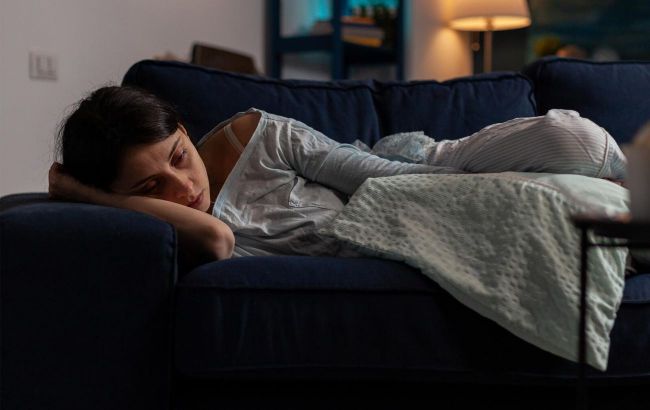Myths about sleep that shorten lives and take away health
 What popular myths about sleep affect our health and shorten our lives (photo: Freepik)
What popular myths about sleep affect our health and shorten our lives (photo: Freepik)
There are many myths about sleep that people believe in. However, researchers at BBC claim that they harm our health and mood, and shorten our lives. Check out which of these myths you believe in.
A team of researchers from New York University conducted a search for various claims about sleep to test them against scientific evidence. It was found that some of these claims are myths that actually shorten lives and have a negative impact on health.
Myth 1: You can get enough sleep in 5 hours
Many successful people talk about how they sleep only 4 hours a night and still feel efficient and energetic. However, researchers argue that the belief that 5 hours a night is enough is one of the most harmful myths for health.
"There is extensive evidence that five hours or less of sleep significantly increases the risk of adverse health outcomes," emphasizes Dr. Rebecca Robbins.
These consequences include cardiovascular diseases such as heart attacks and strokes. Such sleep also significantly reduces life expectancy. Therefore, doctors recommend that everyone strive for constant sleep, which lasts 7-8 hours a night.
Myth 2: Alcohol in the evening improves sleep
This type of relaxation is a myth, and scientists emphasize that this is true whether you choose a glass of wine, a little whiskey, or a bottle of beer. Doctors explain that alcohol can indeed help you fall asleep, but it will drastically worsen the quality of your rest at night.
The fact is that alcohol disrupts REM sleep, which is important for memory and learning. So, you may sleep soundly, but some of the benefits of sleep are lost.
In addition, alcohol has a diuretic effect, which leads to urination in the middle of the night, which will also not contribute to quality sleep.
Myth 3. Watching TV in bed helps you relax
People often think: "I need to rest before going to bed, I'll go watch TV." And they make a big mistake because news or political programs can have a bad effect on sleep. The same goes for TV shows - Game of Thrones will definitely not make your sleep better.
"Often, if we watch TV, it's the nightly news. And that's something that will cause you insomnia or stress right before bed when we're trying to relax and fall asleep," says Dr. Robbins.
Another problem with TV, as well as smartphones and tablets, is that they produce blue light, which can slow down the body's production of the sleep hormone melatonin.
Myth 4. If you have trouble falling asleep, stay in bed
You've been trying to sleep for so long that you've managed to count all the sheep in New Zealand (which is about 28 million). What do you do next? The answer is not to keep trying.
According to Dr. Robbins, we begin to associate our bed with insomnia. It takes a healthy person 15 minutes to fall asleep. If you can't do it, be sure to get out of bed, change the environment, and do something stupid. For example, fold your socks.
Myth 5. Putting off getting up in the morning
Who among us hasn't reached for the snooze button on an alarm clock to give ourselves an extra 5 minutes? But researchers say that when the alarm goes off, we should just get up. Of course, you'll be sleepy, but you can't give in to the temptation to nap.
"Your body goes back to sleep, but it's going to be very light sleep of poor quality," Robbins says.
Scientists advise opening the curtains and exposing yourself to as much bright light as possible.
Myth 6. Snoring is not scary
Of course, snoring can be harmless. It can also be a sign of sleep apnea. This causes the walls of the throat to relax and narrow during sleep, which can briefly stop breathing.
People with this disease are more likely to develop high blood pressure, irregular heartbeat, heart attack, and stroke. One of the warning signs of apnea is loud snoring.
This material is for informational purposes only and should not be used for medical diagnosis or self-treatment. Our goal is to provide readers with accurate information about symptoms, causes, and methods of detecting diseases. RBС-Ukraine is not responsible for any diagnoses that readers may make based on materials from the resource. We do not recommend self-treatment and advise consulting a doctor in case of any health concerns.

